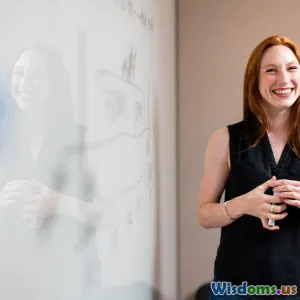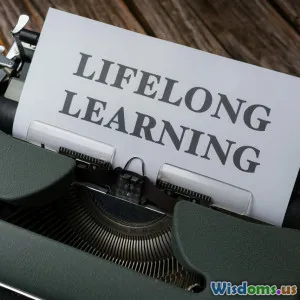
Why Adult Education Is the Key to Boosting Career Transitions
6 min read Discover how adult education empowers career changes by enhancing skills, adaptability, and confidence in a dynamic job market. (0 Reviews)
Why Adult Education Is the Key to Boosting Career Transitions
Introduction
In today’s rapidly evolving job market, traditional career paths are more fluid than ever before. According to the U.S. Bureau of Labor Statistics, the average worker switches jobs 12 times during their career. With industries constantly reshaped by technology and globalization, staying stagnant in one role or skillset is not only risky—it can stall one's professional growth. Enter adult education: a powerful catalyst for career transition. This article explores why adult education is not just a supplementary learning approach but a cornerstone strategy that empowers professionals to pivot, upskill, and thrive amid change.
The Changing Landscape of Work
Before digging into why adult education is critical, it's important to understand the job market dynamics prompting career transitions:
- Technological Disruption: Automation and AI are replacing some job functions while creating new roles requiring fresh skillsets.
- Economic Shifts: Global markets may contract certain sectors (like coal or manufacturing), while expanding others (like renewable energy or IT security).
- Personal Fulfillment: Many adults reconsider their career paths seeking purpose, flexibility, or work–life balance.
Such trends emphasize why adaptability and continuous learning are no longer optional but essential.
Adult Education: More Than Just Learning
What Constitutes Adult Education?
Adult education encompasses formal coursework, professional certifications, online courses, workshops, and self-directed learning that mature learners undertake outside traditional schooling ages. From coding bootcamps to community college classes, the breadth of available options empowers individuals at different stages and backgrounds.
Empowering Skill Acquisition and Upgradation
When transitioning careers, adults often face gaps between their current capabilities and new job requirements. Adult education addresses these gaps:
- Technical Skills: For example, healthcare workers can retrain through accredited courses to pivot into health informatics, a rapidly growing field with projected 15% job growth by 2031 (U.S. Bureau of Labor Statistics).
- Soft Skills: Courses enhancing communication, leadership, or project management are crucial for competitive positioning.
Building Confidence and Reducing Transition Anxiety
Career changes can be daunting, especially later in life. Structured learning programs provide an environment for gradual competence-building and peer support. Laura Steinbach, a career coach, states: "Adult education builds not only skills but the confidence necessary to take the leap into unfamiliar territory."
Real-World Examples and Insights
Case Study 1: Tech Industry Embrace of Adults Learners
Companies like IBM have invested heavily in initiatives like the 'New Collar' job program, which values skills over degrees and encourages adult learners to retrain via certifications. According to IBM, this approach has led to a 60% success rate in transitioning workers from outdated roles to new technical ones within one year.
Case Study 2: Community Colleges as Transition Hubs
Community colleges serve as accessible, affordable education centers helping adults retool in fields such as cybersecurity, healthcare administration, and green technology. Data shows nearly 30% of community college students enroll specifically for career advancement purposes in adulthood.
The Rise of Micro-Credentials and Online Learning
Platforms like Coursera and edX offer micro-credentials tailored to industry demands, enabling flexible learning schedules. For example, an adult learner juggling family responsibilities can earn a data analytics certificate asynchronously, directly translating to job market readiness.
Economic and Social Benefits of Adult Education in Career Transitions
- Reduced Unemployment Duration: Studies indicate that adult learners transitioning through education experience shorter periods of unemployment.
- Increased Earning Potential: Career shifters equipped with recognized credentials often report salary increases ranging from 10% to 30%, depending on the field.
- Greater Job Satisfaction: According to LinkedIn’s Workforce Report, individuals upskilled via adult education report higher engagement and satisfaction after career changes.
Overcoming Barriers to Adult Education
Despite its benefits, barriers exist:
- Cost and Accessibility: Many adults cite financial constraints or lack of access as obstacles.
- Time Management: Balancing study with work and family can be challenging.
Solutions include employer-sponsored programs, government grants, flexible online formats, and family-friendly learning policies.
Conclusion
Career transitions are no longer the exception but the norm in a swiftly changing workforce. Adult education serves as a fundamental enabler for these transitions, breaking barriers through accessible knowledge and practical skill development. By engaging in lifelong learning, adults not only stay competitive but unlock new avenues for fulfillment and growth. As the job market continues to transform, embracing adult education is the smartest investment professionals can make—for both economic stability and personal empowerment.
Ready to pivot your career? Embrace adult education as your strategic partner and navigate change confidently with continuous learning.
Rate the Post
User Reviews
Popular Posts





















